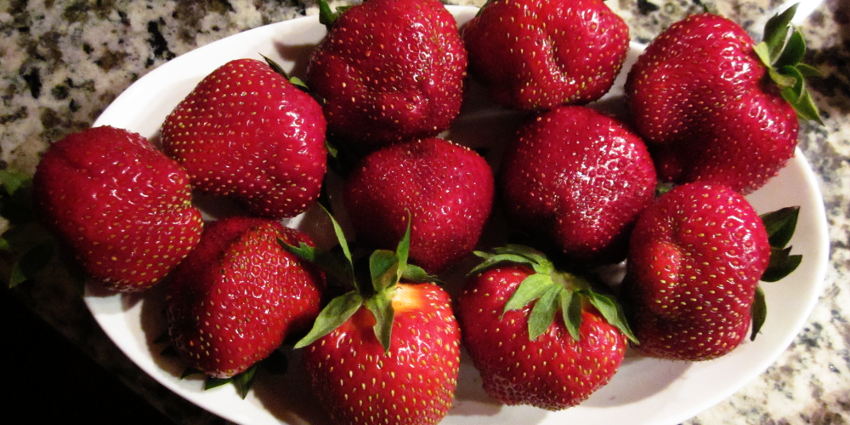The media is a very powerful source of information and influence. Organic gardening comes up in the media again and again. But there's more information that's missing on the side of organics than what's commonly presented.
The first thing I want to make ensure is nobody misunderstands me. I'm not disputing organic gardening, but nor am I supporting it completely. We all need to find a balance and sometimes organic gardening isn't the best. This whole world is about balancing our environment and, whether we like or not, our synthetically created environment must be part of our natural environment.
So the first thing is to try and define the term organic gardening. Organic gardening is based on the idea of using only naturally occurring materials in your gardening. This leads to the first and most common misconception out there. The majority of people who have approached me about organic gardening seem to state that organic implies safe. This is not true. Not by a long shot. Organic does not mean safe and every man, woman, and child must understand this.
Someday everybody should make a list of "organic" products that are not "safe" and we can start there. How about opiates derived from the poppy? Now there's a scary substance. True, it has many beneficial properties when used properly, but it's not "safe" and can be very harmful. What about petroleum products? They're complex hydrocarbons but, technically, they're organic since they are derived naturally. Are they not toxic in one form or another, or is gasoline environmentally friendly? You could argue they're refined, but I don't think that holds up too well. Datura seeds are incredibly toxic and there's no refinement there.
All in all, there are many highly toxic organic substances out there. But are organic gardening products problematic? Of course, it's not that cut and dry. Lets take, for example, Corn Gluten Meal. This is a by-product from corn that was found to have pre-emergent herbicidal properties. Basically, it means that it stops seeds from germinating. OK, so that doesn't sound so bad. However, if you do some digging, it's said corn gluten meal has the greatest effects when applied regularly for a period of four years. At this point, it makes me think a little. If it takes four years to have the best effect, which would tell me that there is at least four year residual which builds up. So you've been using corn gluten religiously for 4 years and a bad winter which killed your lawn. Uh oh. Grass seed won't germinate so now you need to use sod. Maybe that's not so bad, but what about people who just feel this stuff is "safe"? My biggest worry is this corn gluten meal getting to ditches and making its way into our water system. With such a long residual, it scares me to think what will happen in the future.
What about a common indoor insecticide like Pyrethrums? These are chemicals derived from some Chrysanthemums. They can be a very good insecticide, but there are some drawbacks here as well. For example, in our greenhouse, we rely on having good bugs to help keep the population of bad bugs down. Many synthetic insecticides have no effect on these good bugs, but pyrethrums affect all insects. Not only does it affect them when they are applied, they can affect beneficial insects up to 30 days after being applied. With a residual this long, it's not a viable solution in some cases. Additionally, it's an interesting curiosity that pyrethrums are also rarely if ever approved for use on fruits and vegetables.
Pyrethrums are also synthetically formed as "synthetic pyrethroids" which can do the same job as the organic form with some changes in one form or another. Many synthetic pyrethroids have a much shorter residual than the natural forms making them more useful than the organic forms. It's also interesting that some common forms of lice shampoo contain synthetic pyrethroids rather than the organic derivative.
Another risk with organics is related to mutation. Since organic compounds, relatively speaking, stay the same, some bugs gain resistance to insecticides over time. It's similar to the risk of the "super bug" when anti-biotics are overused. Using nothing but one or two organic solutions with greater frequency can post the risk of having the insects become resistant to them.
Now some organics are wonderful. Manure is my favourite organic substance for the garden and there's nothing quite like it. Peat moss, compost, bone meal, blood meal, and kelp are other great items for your garden. But manure can have risks as well, such as potential bacteria. However, natural composting and sunlight can often fix these problems. Organic fertilizers are often great and I have no problem working with those and suggesting that aspect of organic gardening. They do far more good than harm with much less risk than some other organic compounds.
Once you start to examine both sides of the organic coin, it's worth thinking a little about it. Organics are often as toxic as synthetic insecticides and can often be even more toxic. Because of this, they should be treated as such with care and respect. Organic does not mean safe and the two terms should never be considered interchangeable. So before you grab a bottle of some organic insecticide for your garden, remember that even if it's organic, it's still an insecticide which means it's still toxic and it can sometimes be even more toxic than other products on the market.

